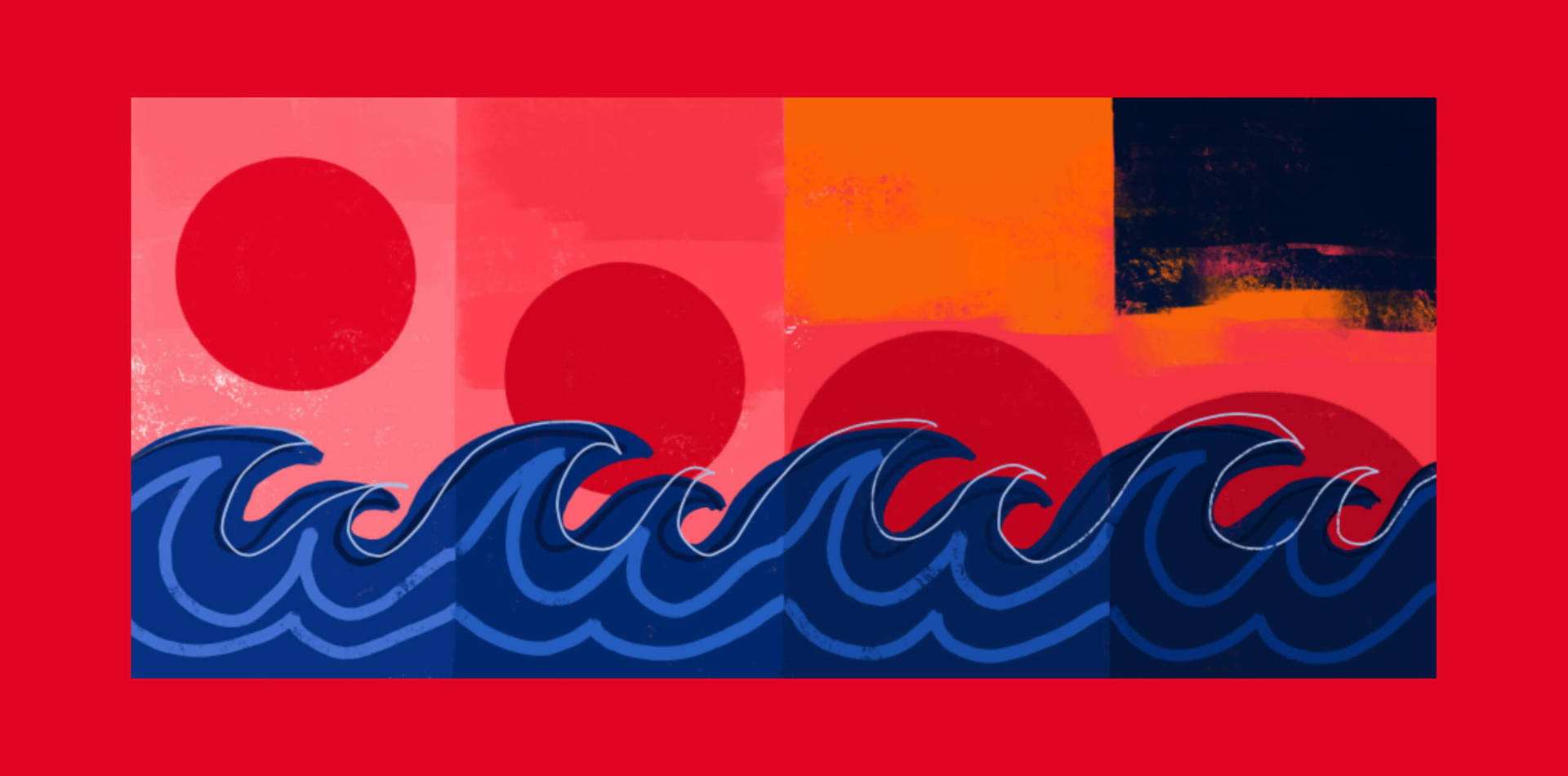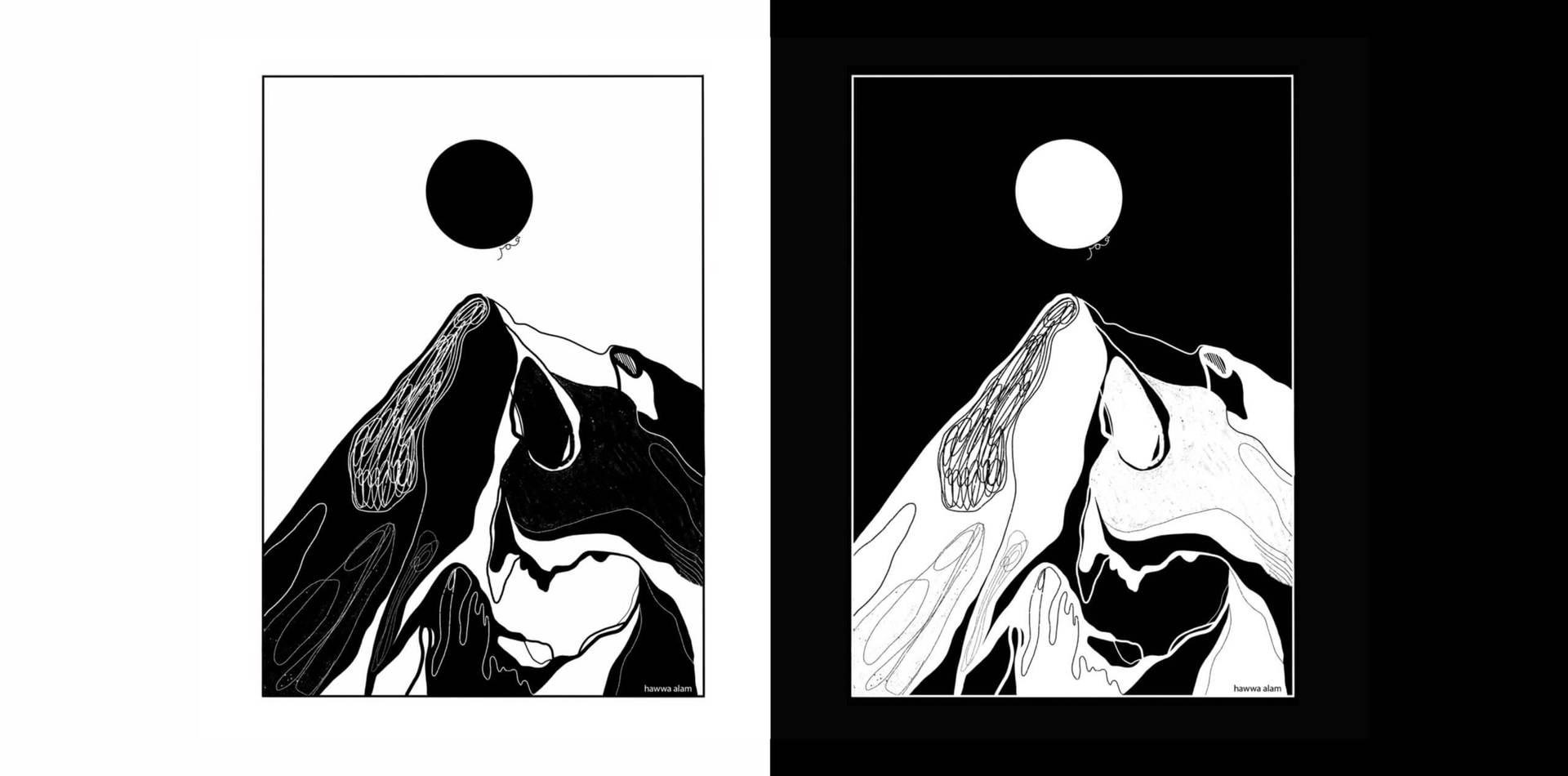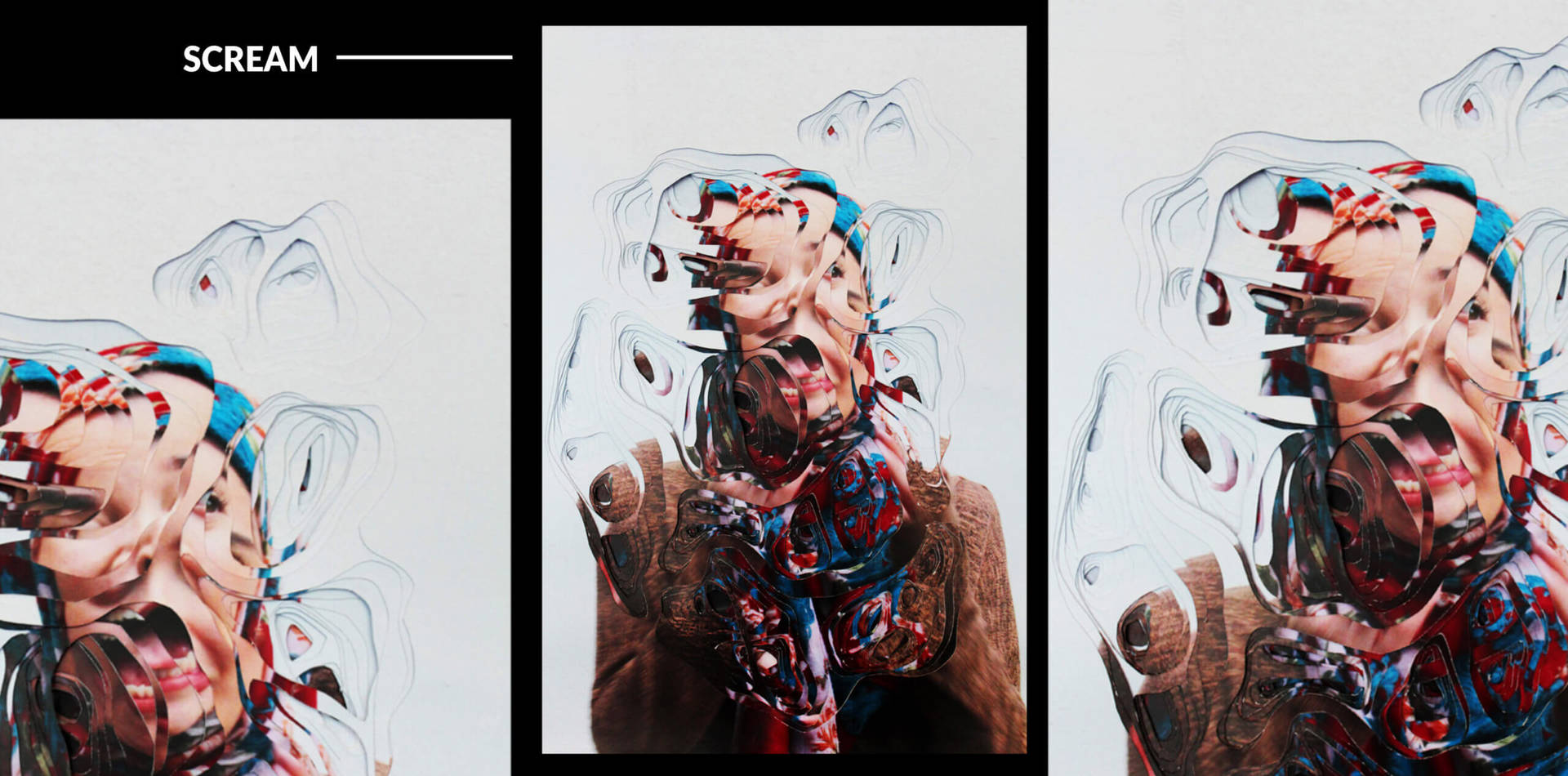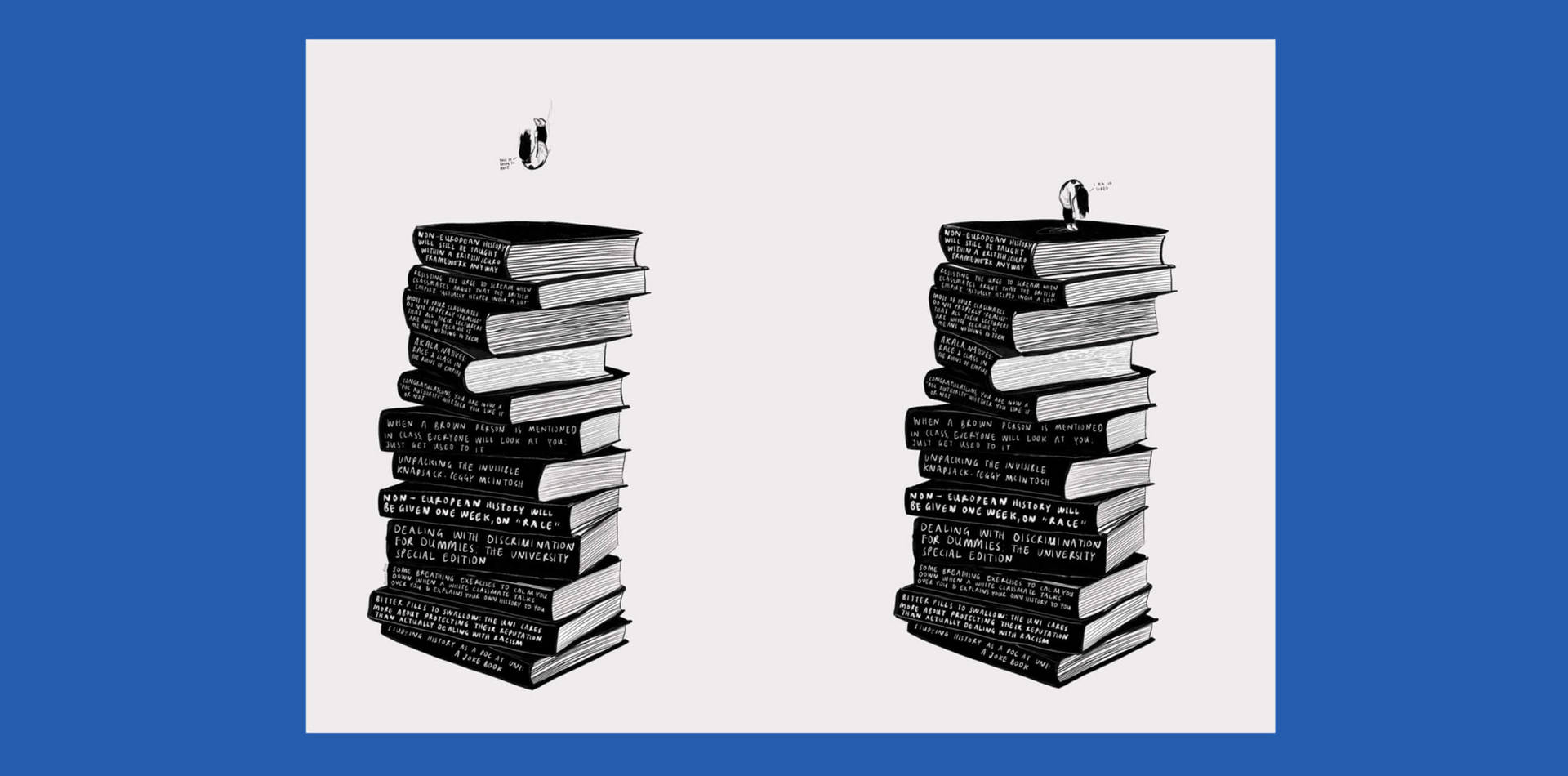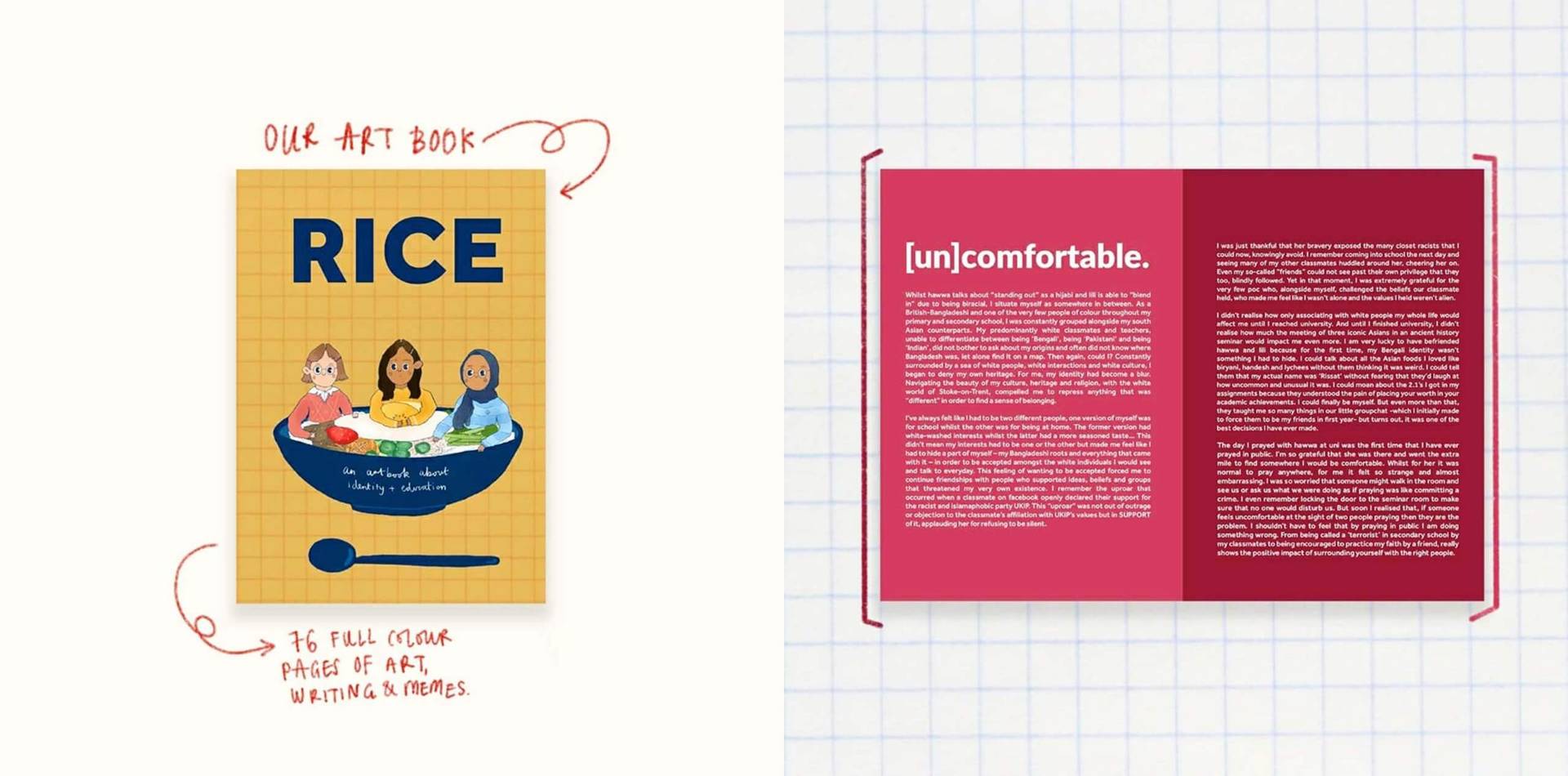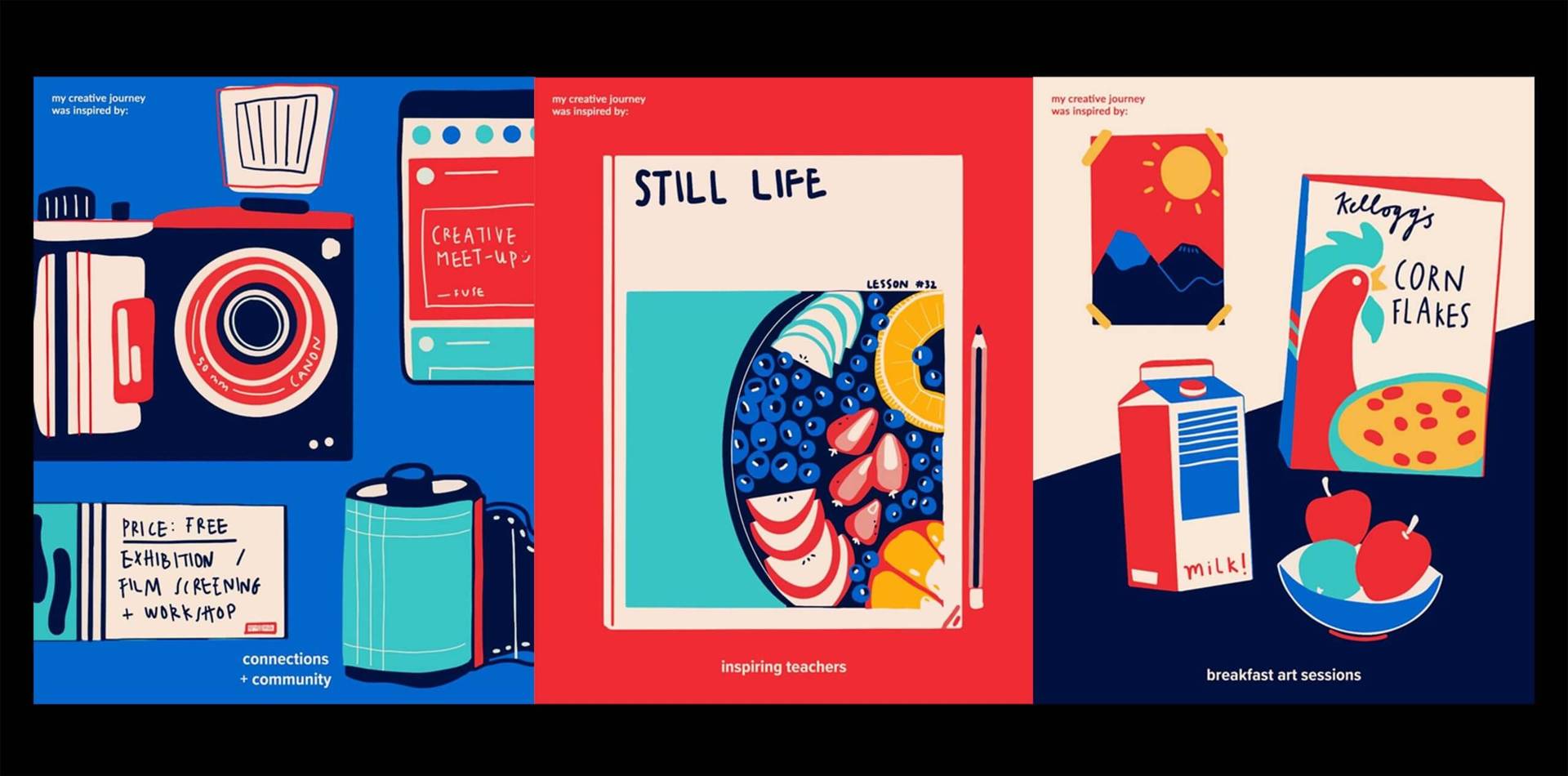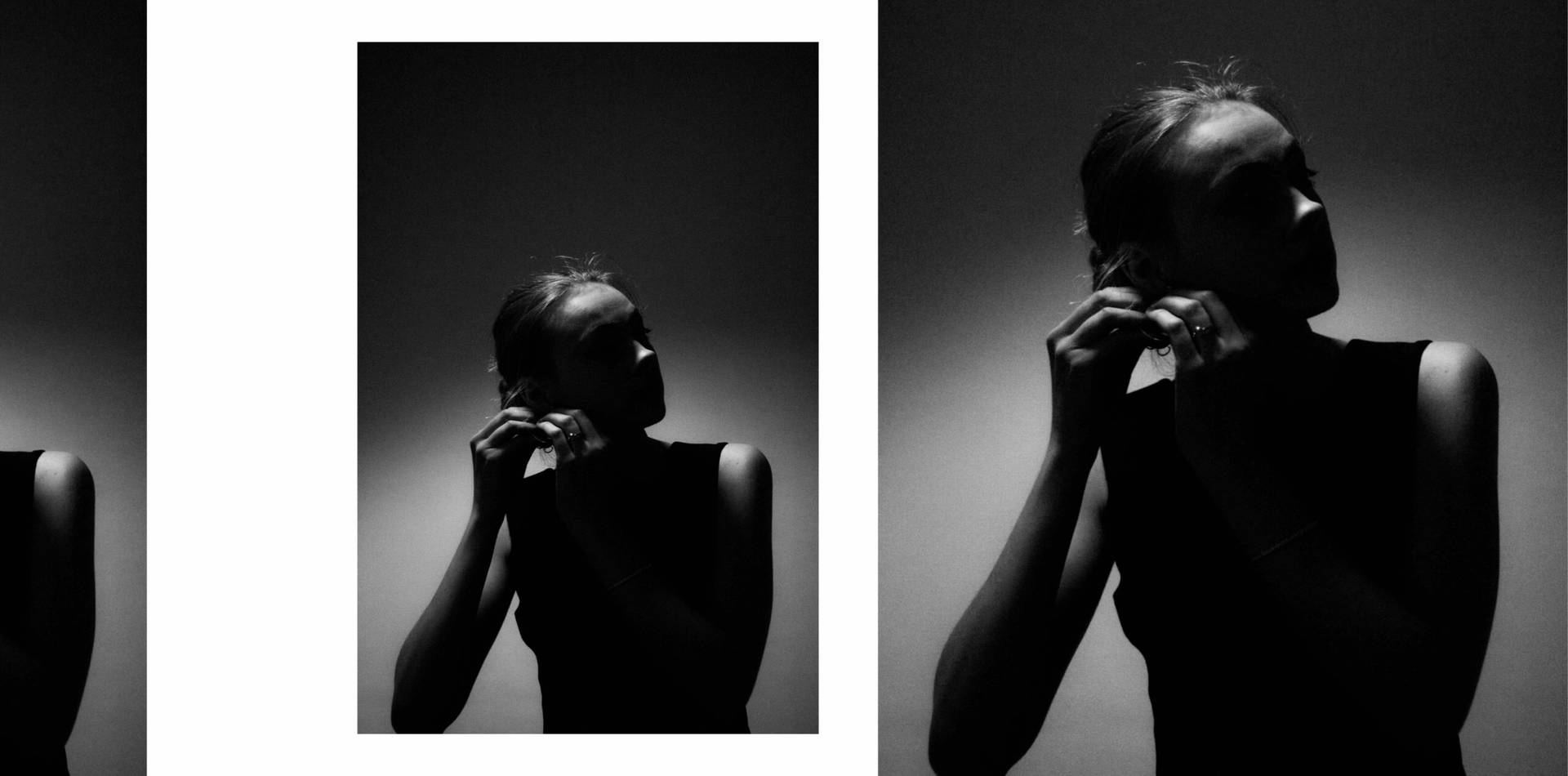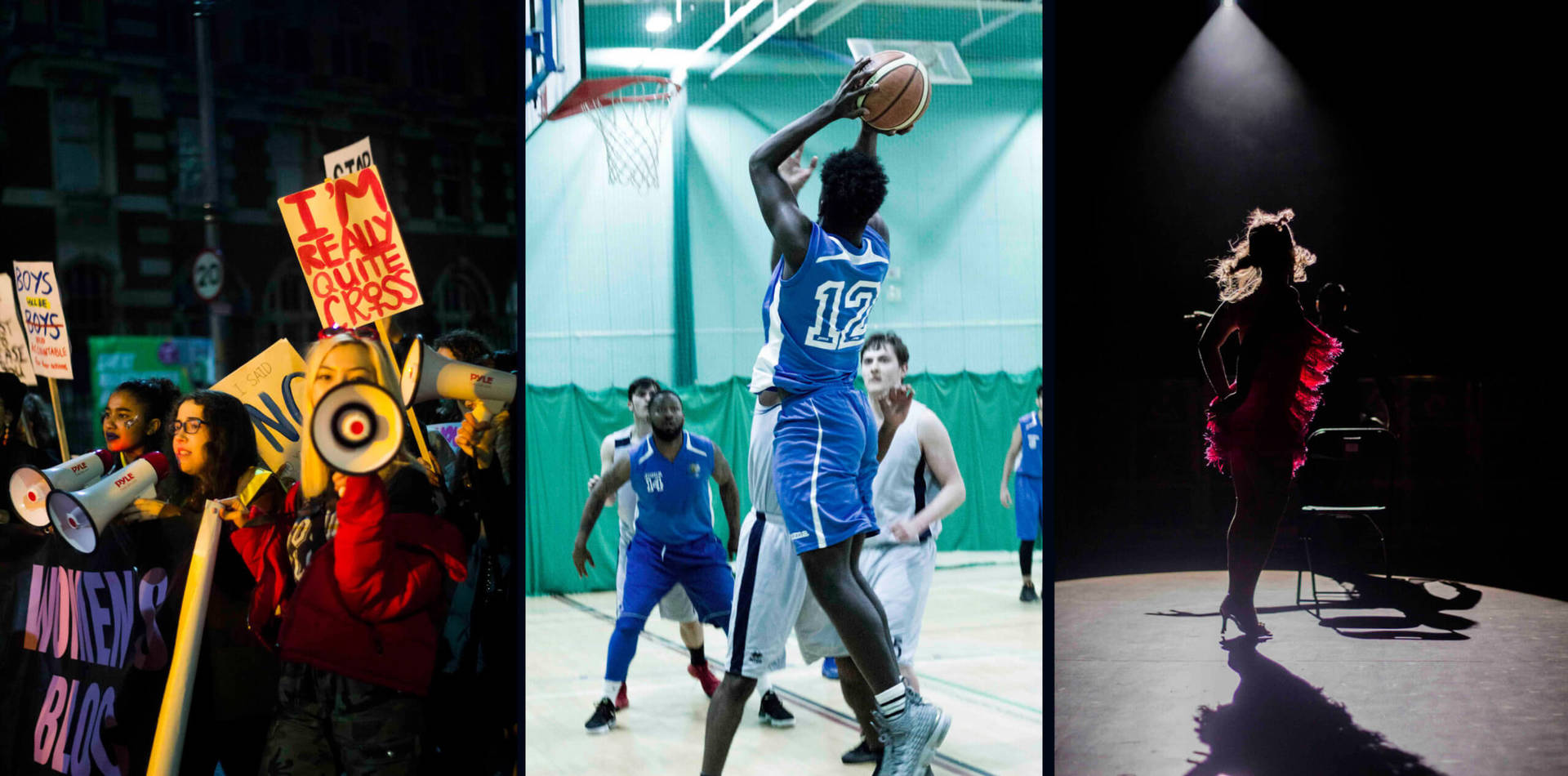Before starting out on her creative career Hawwa Alam graduated with a degree in History, since then she’s juggled multiple part-time roles, including freelancing and working as a cultural learning and participation officer, plus finding time to co-run creative platform The Rice Bowl Collective. Having always enjoyed art and photography, Hawwa has been interested in culture, heritage, and education from a young age. She has pursued career opportunities in these sectors as they’ve come her way and gained an impressive range of skills and experience in a short space of time, including partnering with Adobe on their Love the Journey campaign to share her creative journey.
“I love seeing my photography as almost like a film still – something fluid and continuous rather than a stagnant segment of someone’s life or story” says Hawwa, about her creative practice. Alongside her photography, Hawwa also creates beautifully expressive illustration work usually on the themes of identity, race, culture and belonging. Initially, striving for perfection and feeling intimidated by a fresh blank page, her confidence has grown with experience. Influenced by her art teacher, she has developed a more, “relaxed approach to drawing and thinking about art”, which focuses on “overall creative expression through line, colour and shape, rather than worrying about whether one small element of a drawing is ‘out of place’ or ‘wrong’”.
Along with two fellow students Emmy and Lilina, Hawwa co-founded ‘The Rice Bowl Collective’, a platform discussing university experiences and issues faced by individuals from ethnically diverse backgrounds through social media, workshops and art book RICE. The idea originally grew from discussions and frustrations they had with the educational experience of studying history, in particular with the curriculum, and instances of racism and micro-aggressions. Originally conceived as a mini zine, RICE became a self-published 70-page book filled with art, writing and memes. Hawwa explains, “we are all creative in different ways, and thought it would be a cathartic exercise to express our frustrations in a more public and accessible way to maybe start a conversation about experiences of racialised individuals at university”.

We talked with Hawwa to find out more about her career journey so far, the key things she’s discovered in relation to equality and diversity in the university system and advice for emerging under-represented creatives.
Can you tell us a bit more about your career journey so far?
My journey so far has definitely all been unplanned. Whilst I studied history at university, I never really had a definitive idea of what ‘career’ I wanted to pursue. Instead, I knew what I enjoyed doing and had a number of things I wanted to get involved in within the broader arts, culture, heritage and education sectors. I’ve been approaching every opportunity I get with the mindset that it’s another new experience through which to gain skills. I’ve been working a number of part time jobs since graduating. This has given me more flexibility when taking on new roles as and when they come along. Whilst I don’t know how long that will be sustainable for – I currently work two jobs during the work week, as well as taking on freelance work during the weekends – it has definitely meant I’ve been able to gain a number of different experiences in a fairly short space of time!
“I’ve been approaching every opportunity I get with the mindset that it’s another new experience through which to gain skills.”
What are the main inspirations and influences behind your work as a visual artist and photographer?
As a photographer everything inspires me. Light, colour, shadows, the structure of a building, people, and movement. When I’m not taking on commissioned work – usually event or wedding photography – my daily approach to taking photos is really inspired by film and cinematography. I love seeing my photography as almost like a film still – something fluid and continuous rather than a stagnant segment of someone’s life or story. If I were to sit down and try to name every photographer whose work has inspired me, I would never stop talking.
My own personal artwork style is very much inspired by the way my first art teacher taught me. At the time, I was a huge perfectionist in my art, and would be too scared to start drawing on a fresh page for fear of ruining it. Whilst she taught me many specific art techniques, what also stuck with me was a new, more relaxed approach to drawing and thinking about art, that she encouraged me to try. It focused more on overall creative expression through line, colour and shape, rather than worrying about whether one small element of a drawing was ‘out of place’ or ‘wrong’.
“I love seeing my photography as almost like a film still – something fluid and continuous rather than a stagnant segment of someone’s life or story.”
Have you ever had an experience relating to your identity which became a pivotal moment in your life or work?
There’s nothing specifc. But I would say that my identity as a whole has influenced a lot of my artwork as I’ve grown up. The general theme of ‘identity’ has often been a main focus for me in the various ways I creatively express myself, whether that’s through writing, photography or art.
What was the motivation behind starting the Rice Bowl Collective with Emmy and Lilina and what are your aims for the future?
The formulation of ‘ The Rice Bowl Collective’ as a proper concept was actually accidental. Lili, Emmy and I all studied history together at university and over the years, had a lot of conversations (and rants!), about how problematic some elements of our degree, our experience, or the general curriculum were. After graduation, we decided we would create a zine/art book about it, as we are all creative in different ways, and thought it would be a cathartic exercise to express our frustrations in a more public and accessible way to maybe start a conversation about experiences of ethnically diverse individuals at university, in particular for those studying history. The result was ‘RICE’, an art book which we sold online last year, and – due to a spontaneous conversation and joke about how we wanted to be ‘as cool as gal-dem’ – the creation of RBC. Initially, the plan was to hold a single online event/workshop bringing together students from around the world to share their educational experiences, as a follow-on from the topics that ‘RICE’ discussed. But after the success of that event, we thought we’d turn it into a digital platform where we could run other types of workshops and bring together a community of people to talk about different topics, or just to make friends with, especially during lockdown when everyone felt a lot more isolated.
We love your project that resulted in the art book ‘Rice’. Can you tell us more about this project through which is was created?
As I said, the project stemmed from our shared frustrations studying history as the only three students of colour on our course. The process involved a lot of reading over old Whatsapp messages from our group-chat where we had shared our immediate reactions and thoughts to certain events or conversations that had happened at university, and then thinking about how we wanted to approach the book. We didn’t want it to be just our rants but to be something more productive and thoughtful in the way we discussed topics and that would bring in a diversity of mediums, from poetry and memes to art and reflective pieces of writing. The most difficult part of the process was choosing the final content (we initially conceived it as a small zine but in the end, it turned into a proper art book) and doing the layout, which gave me many hours of unwanted stress!
In forming the Rice Bowl Collective what are the key things you’ve discovered about equality and diversity in the UK university system?
Regardless of the students we have spoken to – spanning countries from the Philippines to Germany to America – everyone has multiple stories about moments when they have felt discriminated against and uncomfortable or angry within their educational institution. When speaking to students from ethnically diverse backgrounds within the UK, it’s no different.
A common thread is often the lack of dedicated safe spaces that exist for us and the constant performative nature of universities as businesses, who use brown and black faces as marketing assets but then do not respect these same people’s voices in situations where issues are raised and the system, the curriculum or a problematic tutor is being challenged.
A huge amount of pressure is placed unfairly on racialised students to call out and find solutions to issues they may be facing, e.g. through calling attention to the problem via protesting or filing a report. Rather than the university taking responsibility or even proactively working to resolve issues in ways that don’t just protect its reputation, but actually helps these students. Most universities would rather ignore or hide problems and use language that avoids complicity, e.g. never naming anything as ‘racism’ and instead calling it a ‘situation’. Also, despite attempts at ‘diversifying’ the curriculum (whether genuine or not), you can often also be the only student of colour in the room, which in itself can be isolating and cause feelings of imposter syndrome and discomfort with just being there taking up space in a classroom or lecture hall.
“…everyone has multiple stories about moments when they have felt discriminated against and uncomfortable or angry within their educational institution. When speaking to students from ethnically diverse backgrounds within the UK, it’s no different.”
What’s the best advice you’ve received during your career?
‘You don’t have to say yes to everything’. I’m definitely a victim of the fear that if you are given a cool opportunity, you should say yes – regardless of your energy levels, mental capacity or general ability to take on that workload on amidst everything else. Sometimes, if you take that role or say yes to that commission, you’re just giving yourself unnecessary stress and a mountain of regret after finally finishing it. So, balance the opportunities you want to experience, with what you know you can actually take on – overworking won’t help anything!
“…balance the opportunities you want to experience, with what you know you can actually take on – overworking won’t help anything!”
Do you have any tips for under-represented creatives just beginning a creative career?
Make friends and network as much as possible! The best advice and guidance I’ve ever received – from pricing, to navigating photography jobs, to running an online shop – have all come from fellow creatives who I met via creative communities and became friends with. Most of my art commissions also come from recommendations. Also try to build some sort of online presence. It can be whatever platform you feel the most comfortable on, but it will massively help other people know where to find you, it can act as a portfolio, and again – it helps with networking. Also follow/join the Fuse Directory, follow @kei_maye on instagram, and ask to join The Arena’s Slack community channel – they’re all great for networking, finding opportunities and asking for any type of creative advice.

